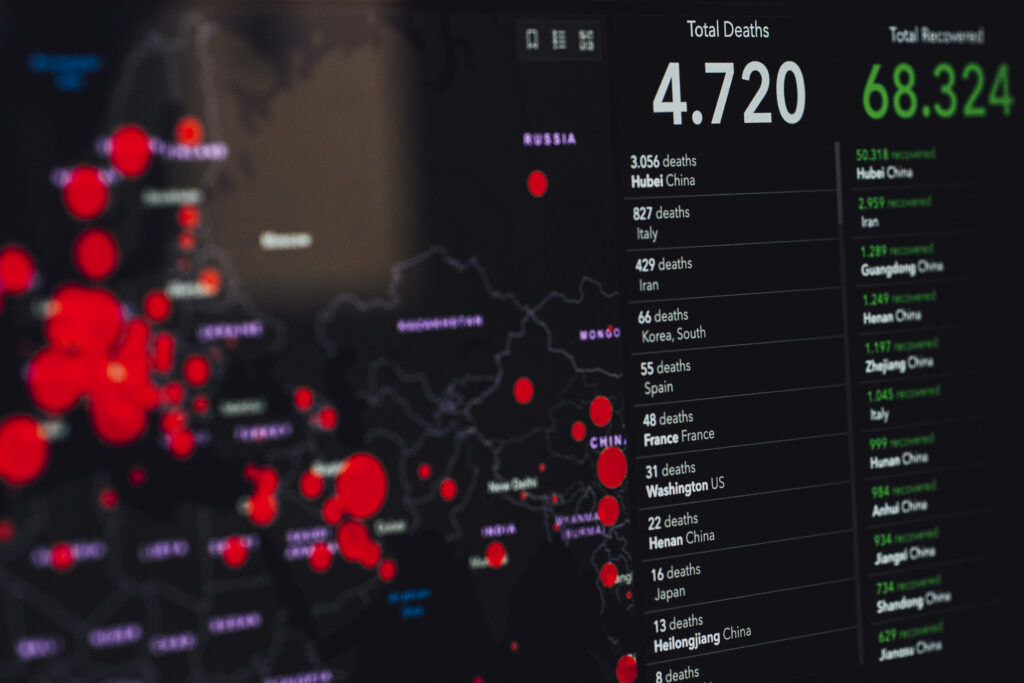Covid Apathy: Recognizing the Reality and Overcoming Fatigue brings attention to the prevalent issue of individuals becoming indifferent and weary towards the ongoing Covid-19 pandemic. With the relaxation of mask mandates and social distancing measures in many areas, some people have chosen to ignore the existence of the virus altogether. Meanwhile, others respond to the growing threat with anger or denial, exacerbating the problem. Trauma-triggered apathy may require therapy for individuals, emphasizing the need for recognition and action. However, it is important to acknowledge that stress can be harnessed positively with resilience. Incorporating practices such as exercise, mindfulness, and deep breathing can help reduce stress levels and enhance mental well-being. It is strongly advised to consider getting the Covid-19 booster vaccination for added protection against the virus. Furthermore, supporting those who choose to wear masks, particularly individuals at high risk, and displaying understanding towards differing decisions on mask-wearing is crucial.

Understanding Covid Apathy and Fatigue
Covid apathy and fatigue have become an ongoing challenge as the world tries to navigate the pandemic. Despite the initial sense of urgency and vigilance that were prevalent during the early stages of Covid-19, many people have now become accustomed to life without masks and social distancing. This transition has led to a sense of apathy and fatigue, where individuals may feel indifferent or less concerned about the ongoing threat of the virus.
Adapting to life without masks and social distancing
As restrictions ease and daily life returns to a semblance of normalcy, people have started adapting to a new way of living without masks and social distancing. While this may seem like a positive development, it can also contribute to Covid apathy and fatigue. When people no longer feel the immediate threat or see the direct impact of the virus, they may become complacent and fail to prioritize precautionary measures.

Choosing to ignore the reality of Covid
Some individuals go beyond adapting to life without masks and social distancing and actively choose to ignore the reality of Covid. They may downplay its severity or even deny its existence altogether. This behavior can stem from various reasons, such as a desire to regain a sense of control or a refusal to accept the disruptions caused by the pandemic. However, ignoring the reality of Covid can have serious consequences and hinder efforts to prevent the spread of the virus.
Responding with anger or denial towards the virus
Another common response to Covid is anger or denial. Some individuals may direct their frustration towards the virus itself, blaming it for the disruptions and hardships they have faced. Others may deny the seriousness of the virus and dismiss scientific evidence, leading to a disregard for protective measures and an increased risk of transmission. It is crucial to address these responses and educate individuals on the importance of responsible behavior during these challenging times.

Recognizing the Impacts of Covid Apathy
Covid apathy can be triggered by various factors, with trauma playing a significant role. The pandemic has brought about unprecedented levels of stress and uncertainty, causing trauma in many individuals. This trauma can result in a sense of helplessness and detachment from the ongoing threat of Covid. Recognizing this trauma is crucial in addressing and managing Covid apathy effectively.
Therapeutic approaches can play a vital role in addressing Covid apathy. Therapists can help individuals process their trauma, overcome their apathy, and develop coping mechanisms to navigate the challenges posed by the pandemic. By understanding and addressing the root causes of apathy, individuals can regain their sense of purpose and motivation in protecting themselves and others.
The importance of viewing stress positively and building resilience cannot be overstated. While stress is often seen as detrimental to mental health, it can also be beneficial if viewed in the right light. Stress can serve as a motivation to adopt healthier habits, such as practicing good hygiene, maintaining a balanced lifestyle, and seeking professional help when needed. Building resilience enables individuals to bounce back from adversity and adapt to the changing circumstances brought about by the pandemic.
Overcoming Covid Apathy: Strategies for Mental Health
Exercise is a powerful stress-reducing activity that can help individuals overcome Covid apathy. Engaging in physical activity releases endorphins, which are known as “feel-good” hormones, promoting a positive mood and reducing stress levels. Whether it is a brisk walk, yoga session, or home workout, incorporating exercise into daily routines can significantly contribute to improved mental health and overall well-being.
Mindfulness practices have gained significant attention in recent years for their effectiveness in managing stress and promoting mental health. Mindfulness involves focusing one’s attention on the present moment, without judgment. By cultivating mindfulness, individuals can reduce rumination, alleviate anxiety, and enhance self-awareness. Mindfulness can be practiced through various techniques such as meditation, deep breathing exercises, or simply paying close attention to one’s surroundings.
Deep breathing techniques are simple yet powerful tools for relaxation. When individuals are feeling overwhelmed or anxious, deep breathing can help calm the nervous system and reduce stress levels. By taking slow, deep breaths and focusing on the sensation of the breath, individuals can induce a state of relaxation and promote a sense of calmness. Incorporating deep breathing exercises into daily routines can be an effective strategy for managing Covid fatigue and apathy.
Understanding the benefits of stress and resilience is essential in overcoming Covid apathy. Stress, when managed properly, can enhance performance, build character, and promote personal growth. It is vital to recognize that stress is a natural response to challenging situations and can serve as a driving force for positive change. Building resilience allows individuals to navigate adversity and bounce back from setbacks, promoting mental and emotional well-being during these challenging times.
Boosting Protection: The Covid-19 Booster Vaccination
As the threat of Covid continues, it is crucial to recognize the importance of getting the Covid-19 booster vaccination. While initial vaccinations offer significant protection against the virus, the booster vaccination provides an added layer of defense. Boosters help enhance immunity and extend the duration of protection, especially against emerging variants. By prioritizing booster vaccinations, individuals can further safeguard themselves and contribute to the overall efforts to curb the spread of the virus.
Supporting Mask-Wearing: A Collective Effort
Advocating for mask-wearing amidst Covid apathy remains a vital component of protecting public health. Even with the easing of restrictions, wearing masks in crowded public spaces or enclosed areas can significantly reduce the risk of transmission. Supporting and encouraging mask-wearing is crucial, as it not only protects individuals but also helps protect those who are more vulnerable, such as the elderly or immunocompromised individuals.
It is essential to acknowledge and support those who choose to wear masks, even when it may not be mandatory. Some individuals may have valid reasons for continuing to wear masks, such as personal health conditions or the need to protect vulnerable family members. Respecting their decisions and normalizing mask-wearing can contribute to a healthier and safer community as a whole.
High-risk individuals, including those with underlying health conditions or weakened immune systems, require special attention when it comes to mask-wearing. For them, masks provide an additional layer of protection and can significantly reduce the risk of severe illness or complications. Supporting mask-wearing among high-risk individuals demonstrates empathy and a shared commitment to safeguarding the well-being of the most vulnerable in society.
Respecting Personal Decisions: Practicing Grace and Understanding
Navigating diverse perspectives on mask-wearing can be challenging, but it is crucial to practice grace and understanding. Individuals may have differing beliefs, experiences, or access to information that shapes their decisions regarding mask-wearing. It is essential to engage in respectful dialogue, exchange accurate information, and promote empathy rather than engaging in judgment or hostility.
Respecting others’ decisions regarding mask-wearing fosters a sense of unity and collective responsibility. Instead of focusing on differences, it is important to emphasize the shared goal of protecting public health. By practicing grace and understanding, individuals can contribute to a more inclusive and compassionate society, even in the face of a challenging pandemic.
Promoting empathy and understanding during the pandemic can significantly impact individuals’ mental health and overall well-being. This involves recognizing that everyone copes with the pandemic differently and that their experiences and perspectives are valid. By listening to and supporting each other, individuals can foster a sense of unity and resilience, creating lasting positive effects in both personal and collective contexts.
In conclusion, understanding and addressing Covid apathy and fatigue are crucial in effectively navigating the Covid-19 pandemic. By recognizing the impacts of apathy, employing strategies for mental health, and collectively promoting protective measures such as mask-wearing and vaccinations, individuals can contribute to a healthier and safer community. Practicing grace and understanding towards differing perspectives and experiences is essential for fostering empathy and resilience during these challenging times.
